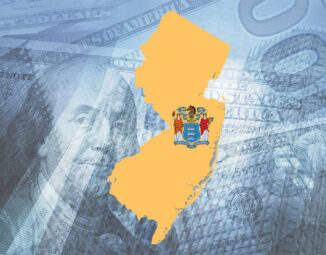Could A Tax Assessment Appeal Save You Money? If so, you Must Act Now!
Understanding PA’s Assessment Appeal Process and Important Deadlines
Introduction
The system of real estate taxation in Pennsylvania is quite complex, resulting in many owners of commercial, industrial, or residential properties paying more than their “fair share” of real estate taxes. With tax appeal deadlines rapidly approaching, now is a good time to acquaint yourself with how Pennsylvania’s system of real estate taxation works, so that you may properly evaluate the potential for an appeal of your tax assessment for the coming tax year.
The amount of taxes that you owe annually is determined by taking the “assessed value” of your property for real estate tax purposes and multiplying it by the combined millage rates of the various taxing jurisdictions in which your property is located. Typically, your taxing jurisdictions are comprised of the County, School District, and Township in which your property is located.
In Pennsylvania, the valuation of property for real estate tax purposes is done by the Board of Assessment Appeals of the County in which a property owner’s real estate is located. Theoretically, all counties try to bring every property owner’s assessed values close to the “fair market value” of their parcels for real estate purposes. However, over time these values tend not to be reflective of the actual fair market value of those properties. In fact, many times the assessed values of properties turn out to be far higher than the actual values of those properties, thereby causing the affected property owners to bear a disproportionate share of the real estate tax burden. To protect yourself against such disparate tax treatment, you should consider reaching out to an attorney at Obermayer to help you evaluate a potential appeal of your property’s assessment for the coming tax year.
Filing An Appeal
Every property owner in Pennsylvania has the right to appeal their real estate tax assessment annually. However, the assessed values from which your 2024 tax bills will be determined must be appealed by the applicable deadlines set forth by the County in which the property is located. For the 2024 tax year, almost all suburban counties in southeastern Pennsylvania have an appeal deadline of August 1, 2023. In Philadelphia, the appeal deadline for tax year 2024 is the first Monday in October of 2023.
There are also other types of appeals that may be filed before the relevant Boards of Assessment, including “interim assessment” appeals (for which the deadline is usually provided on notice to the property owner). If you should receive such an interim tax assessment, you should contact us immediately to ensure that your rights are protected.
In any assessment appeal, the burden of proof is on the party claiming that the existing assessment of their property does not accurately reflect the property’s actual market value. In order to meet that burden, convincing evidence of fair market value must be produced before the relevant tax assessment appeals Board. There are various approaches to the valuation of the property and various strategies which may be employed at the Board of Assessment level in order to obtain the best result for you. Generally, the most compelling evidence of value would be an expert appraisal, but many other valid forms of evidence also exist. The types of evidence to be presented and the proper strategy in any appeal will necessarily be specific to the facts and circumstances of your particular case.
Obermayer’s attorneys focus on efficiently maximizing real estate tax savings for our clients, which savings may continue for several years into the future. Our attorneys have obtained excellent results in all of the counties throughout southeastern Pennsylvania and beyond. If you own or lease commercial, industrial, or residential real estate in Pennsylvania, and believe your property may be overvalued for real estate tax purposes, our attorneys will partner with you in evaluating the potential tax savings and determining the optimal strategy to obtain the best results. Our goal, of course, is always to maximize the tax savings to you on your annual real estate tax liabilities.
The information contained in this publication should not be construed as legal advice, is not a substitute for legal counsel, and should not be relied on as such. For legal advice or answers to specific questions, please contact one of our attorneys.



